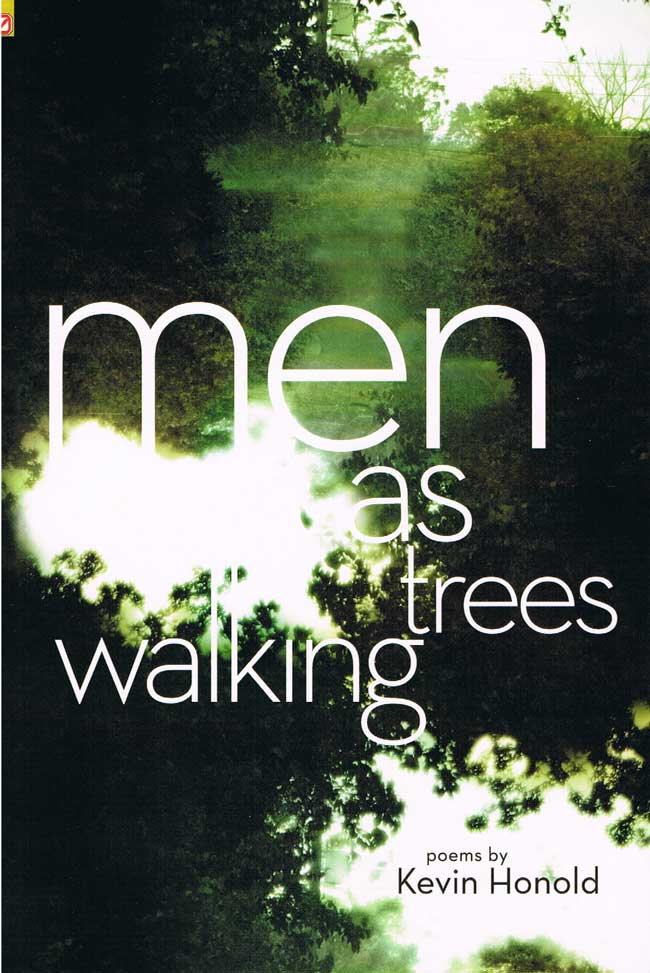Men as Trees WalkingKevin HonoldThe Ohio State University Press/The Journal Award in Poetry |
 11/23/2010 Poetry/General 64 pp. 6x9  $14.95 paper 978-0-8142-5176-8 Add paper to shopping cart Shopping Cart Instructions Review/Change Shopping Cart & Check-out | |||
| Table of Contents |
“‘My subject is War, and the pity of War. The Poetry is in the pity,’ said Wilfred Owen. Kevin Honold, veteran of the First Gulf War, adds terror and guilt to the pity in Owen’s classic statement of poetics. He describes how an Iraqi armored troop carrier gets hit by a shell from an American tank: ‘A bright round strings the desert, the carrier / rocks once in place and burns, and no one climbs out.’ Whatever he writes about—the homeless taking shelter in Chicago’s Union Station, his work as a plumber’s assistant, auto wrecks, migratory birds, getting drunk on a Sunday afternoon by himself, an abandoned house burned down as a practice exercise by the fire department—the long shadow of war stretches near. In his penultimate poem, he imagines Odysseus, veteran of the Trojan War, trying to make his way home in a small open boat. Paradoxically, he prays, ‘O Poseidon, / make him suffer just a little longer. / Torquemada, I think he’s ready. / Show him the instruments.’ Thankfully for us, the instruments that torture are also the instruments that make an exquisite, sharply honed music. Read this book and be riven.” —Donald Platt, author of Dirt Angels and My Father Says Grace “In Men as Trees Walking Kevin Honold takes a hard look at cityscapes, work, and the lives of soldiers from ancient Greece to the contemporary Persian Gulf. Few poets are as comfortable dealing with history or as clear-eyed about the present. This is work of precision, maturity, and insight. Kevin Honold takes on things that matter, and what he has to say is articulate and compelling.” —Don Bogen America’s cities embody some of the central paradoxes involved with modern American life and with human existence: poverty in the midst of plenty; a type of loneliness that is intensified by a crowd; dirty brick smokestacks and disused factories that are nonetheless seen as beautiful. Many of these poems inhabit this paradox, especially where people are involved. “The only madness is loneliness,” wrote the Irish poet John Montague. He was echoing Matthew Arnold’s sentiment on the same matter: “The only sanity lies in those brief, ironic moments of tenderness shared between two people.” Men as Trees Walking dives into this particular strain of madness that afflicts people in cities: exploring it, teasing out the paradoxes, and probing its secrets. Yet, there is a certain beauty in a cityscape, even an abandoned and dilapidated one. Because the underlying element of life is paradox, these poems search for, and find, the beauty—something redemptive, something reassuringly human—in empty lots, in burning gasfields, on crosstown buses, and on desert battlefields. Kevin Honold is currently the writing facilitator for the RISE program in the biology department at New Mexico State University. | |||

